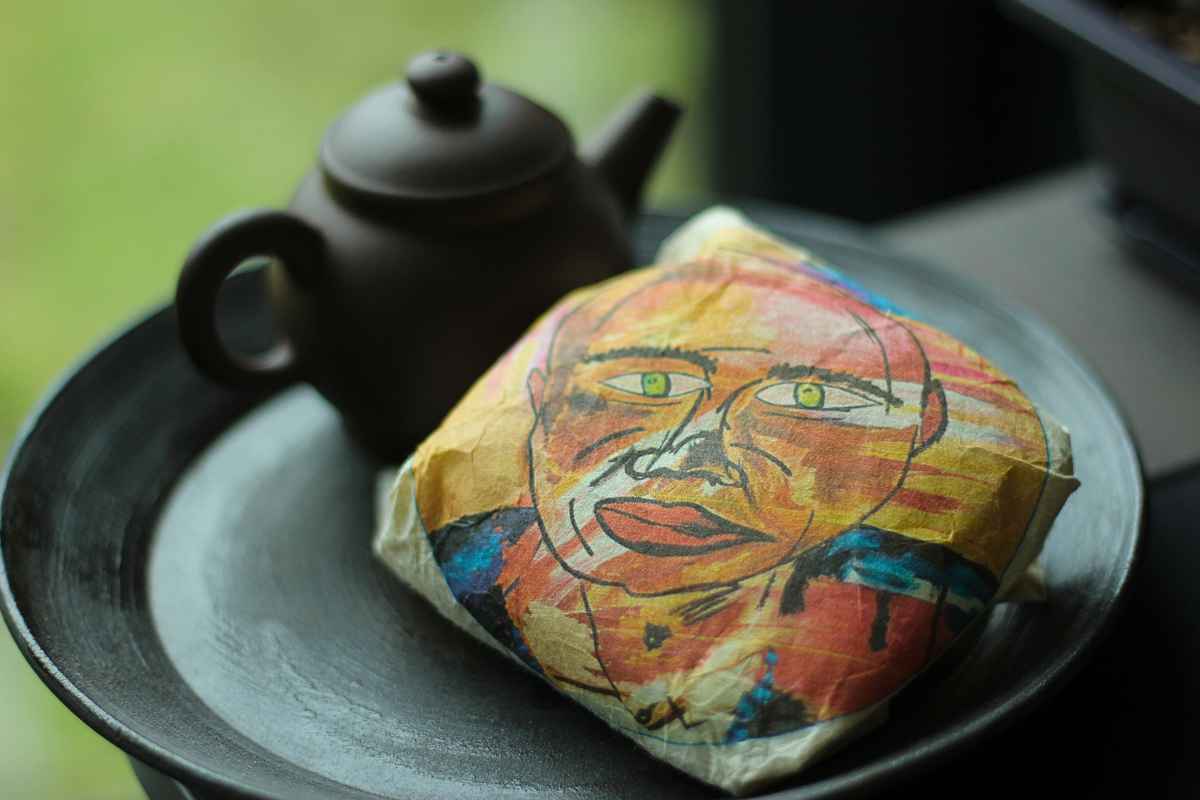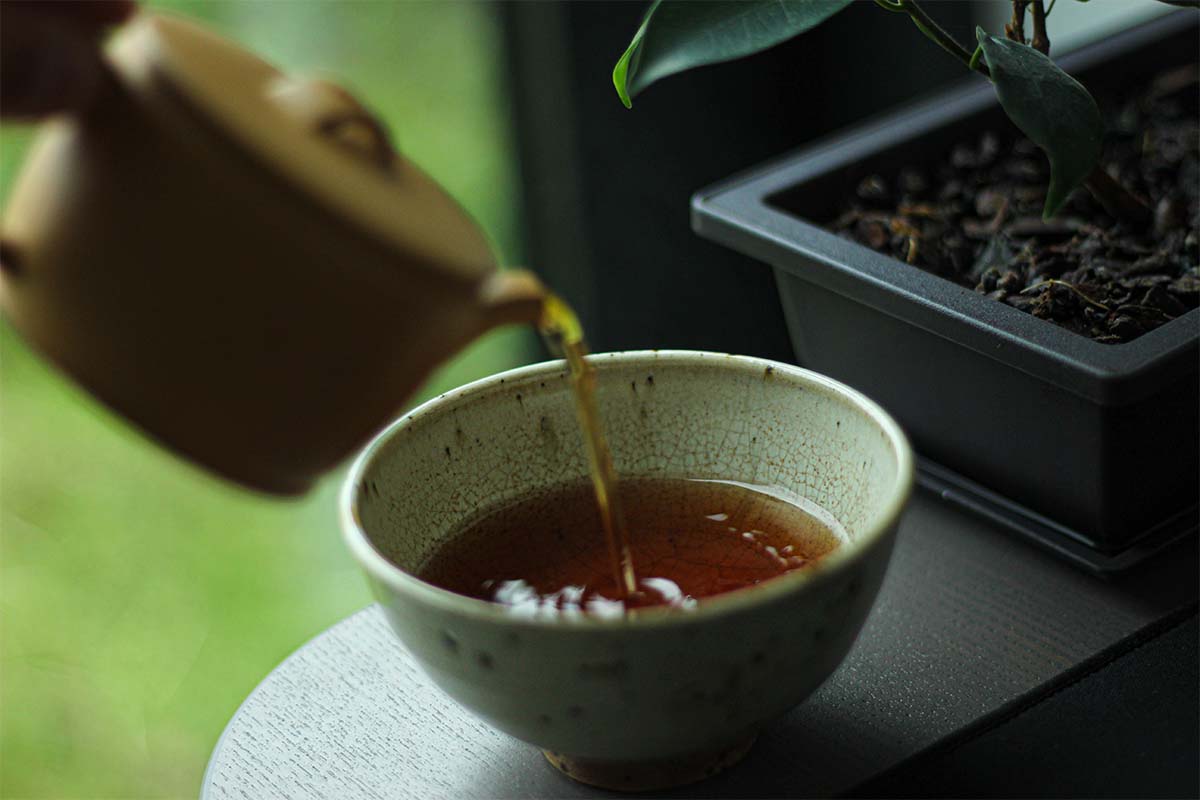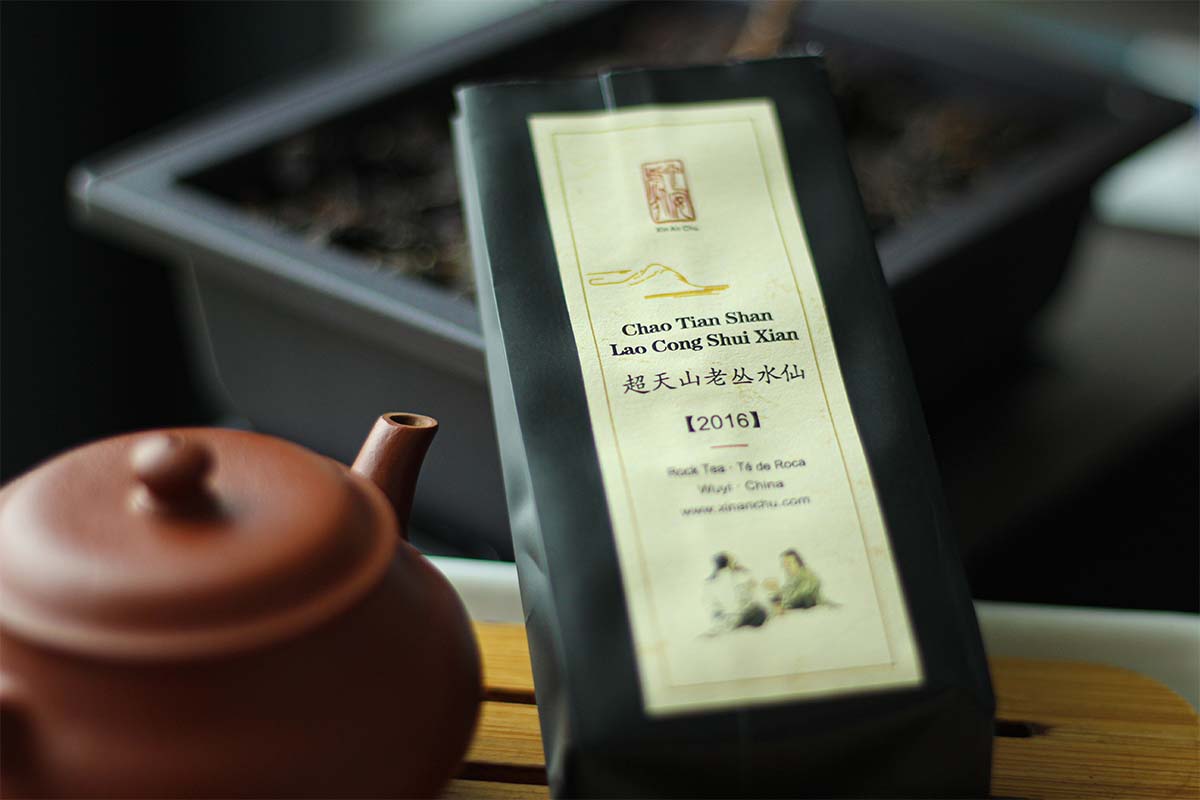One of the things I’m always doing is looking for new teas. Recently, I placed an order at The Tea Guru and one of those teas is the 2010 Hai Lang Hao ‘As You Like’ shou Puerh tea. I bought it because its description caught my attention (only bought 100g and not a full cake). I was curious to experience what the different materials in the cake would be like after 9 years.
Do you want to read about another shou Puerh tea? You can read my tasting notes of white2tea’s 2018 Charlie.
Menghai?
The leaves originate from the Menghai area in Yunnan Province, China. When looking for some information about this tea, it became clear that the word ‘Menghai’ has a double meaning. One of its meanings refers to Menghai Tea Factory (勐海茶叶厂), which is probably the oldest tea factory in Yunnan Province. This factory is one of the two original factories (together with Kunming Tea Factory) that came up with the technique of wet-piling tea leaves to create shou Puerh tea (in 1973). The factory is located in Menghai county, which is not far from Pu’er in Yunnan Province. This, in its turn, brings us to the second meaning of ‘Menghai’: it simply refers to the location where the tea is grown.
The 2010 ‘As You Like’ tea consists of older Menghai tea leaves. This means that is is made of leaves coming from anywhere Menghai County and not specifically from the tea factory. It might seem a bit unnecessary to make this distinction but I was a bit confused at first and that was why I wanted to know the exact details.
Hai Lang Hao As You Like
As briefly stated above, this tea was pressed into a cake in 2010 but it is made from older material. It’s a blend of 2003, 2008 and 2009 tea leaves from various grades. This tea does not come from the Menghai Tea factory but is a cake by the Hai lang Hao (also known as ‘Xiang Sui’) brand. This brand is seen as a producer of high-quality shou and sheng Puerh teas, especially in the last few years. A final element worth noting is that this tea is not fully fermented during production. This implies that it’s not pushed over the edge and that it has great potential for future ageing.
The leaves have a really deep and dark brown colour. I can see some stems as well and it’s tightly pressed into a cake. It’s mainly an earthy smell with some subtle notes of dry wood and even some very light spices.
This is not all of the leaves but I already threw some of them away before realising I forgot to take a picture. The leaves look really small now and the colour is dark, almost black even. The smell is still earthy but a bit lighter now. Surprisingly, I get some very subtle notes of fresh laundry (?!) and even some minerality.
Tea tasting
- Water 99°C
- 10g of leaves for a 200ml Jianshui teapot
- 2 rinses
- 6 steeps
Infusions
1st infusion (15 sec): the colour of this steep is a darker red. It has a light earthy flavour and is perfect to start the session.
2nd infusion (20 sec): the colour is darker now. By just looking at the colour of the liquor, my guess is that this one will be more intense. It has a clean, thick and creamy mouthfeel. Light medicinal flavours and some earthy notes.
3rd infusion (25 sec): very dark liquor. Now the flavours start coming through. Medium medicinal flavours and subtle notes of dry wood.
4th infusion (30 sec): this is a smooth infusion. It just rolls down your throat. Pleasant medicinal flavours and subtle earthy notes. Nothing too intense.
5th infusion (35 sec): it’s going back to the earthy notes and I also have a chalky mouthfeel after swallowing.
6th infusion (40 sec): surprisingly, this steep has traces of a very subtle sweetness. In combination with light earthy notes.
I did some additional infusions and the leaves just kept going. More of the same flavours.
Conclusion
You can clearly feel that this is a shou Puerh tea that has been aged for a few years (and that it contains some older material). For me, the difference between some younger shous I have tasted and this one is that it is more subtle and thereby easier to drink. It feels and tastes as if the sharp edges and aggressiveness of the tea have disappeared and that the deeper and richer flavours remain. It’s very easy to drink as it is a clean tea. Pleasant and light flavours that are perfect to relax with. It’s not a tea I would drink if I had to celebrate something special, but it’s more a tea that you can drink every day and keep enjoying. For me, this is the ideal everyday shou as you won’t get tired of it that easy.
If you want to try this tea for yourself, you can buy it here.




